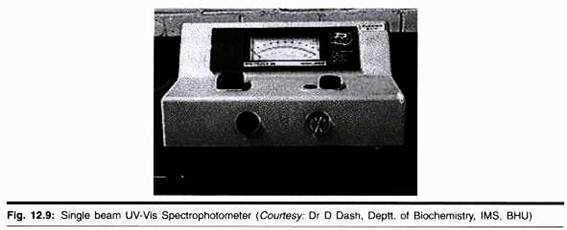In this article we will discuss about the production of recombinant antibodies in transgenic plants.
Antibodies are complex glycoproteins that recognise and bind to target antigen with high specificity (Fig. 16.2 or Fig. 16.3). Antibody production is restricted only to animals (mammals). Antibodies are used in diagnosis, prevention and treatment of disease.
The productions of antibodies in plants are popularly referred as plantibodies and it is special challenge because the molecules must fold and assemble correctly to recognise the antigens. Serum antibodies are tetramers of two identical heavy chains and two identical light chains.
In addition, there are other complex antibody forms such as secretary antibodies, which are dimers of the typical serum antibodies and include two extra polypeptide chains. Assembly of antibodies in mammals requires two different cell types, but plants that express four different foreign genes can assemble these antibodies in a single cell. Plants have been chosen as ideal candidate for molecular farming of antibodies.
One of the first earliest and first reports on antibody production in transgenic plants was described in 1989. Since then, several enthusiastic workers have claimed the incidence of antibody production in kilograms. Reports have also been accumulated on antibody production ranging from single chain molecule to multimeric secretary antibody in whole plants.
Model plants like Arabidopsis and tobacco plants have been extensively used for antibody production initially. Expression of recombinant gene products was correctly folded and assembled multimeric molecule in plants, which was functionally identical to the mammalian system. Strategies for plantibody production in plants involve two phases.
In the first phase, genes for heavy chain and light chain were expressed in two separate plants, i.e., one of the transgenic plants contain gene for heavy chain and other contains gene for light chain. Subsequently in the second phase, two transgenic plants were then crossed to procure hybrid progeny that expresses both the genes for heavy and light chains and assembled into complete antibody molecule.
Although genes for different forms of recombinant antibody have been constructed and examined in E. coli, but their low expression and impairment of folding pathway turns towards their production in plants.
Production of multiple component IgA antibodies for therapeutic treatment has been successfully shown by Ma and co-workers. The technique involves production of various antibody subunits in different plant lines that are subsequently crossed to produce functional IgA (SIgA) secretary antibody. It is extensively used in dental carries caused by streptococcus mutans.
This antibody consist of four peptide molecule such as heavy and light chain, joined by J molecule and associated with secretary component. Thus, SIgA antibody production requires four transgenic plant lines. This antibody was successfully produced by using four transgenic tobacco lines, in which genes for either H, L or J chains and secretary component were expressed driven by 35 cam V promoter.
After four separate parental lines were constructed, each expressed individual fragments of the antibody such as H, L or J chain or secretary component. In gene pyramiding process, tobacco transgenic lines expressing H and L chains were crossed, producing F: plants that accumulate IgA.
These transgenic plants were again crossed with transgenic plant expressing J chain component. The resultant hybrid progeny accumulates dimeric IgA. The plants were finally crossed with another transgenic plant expressing the secretary component (Fig. 16.4). Finally the gene pyramiding process was successful in the production of transgenic plants expressing complete functional secretary IgA antibody (Fig. 16.5).
High level expression of recombinant single chain FV antibody (Sc FVs) was obtained after retention of these proteins in lumen of the endoplasmic reticulum (ER). This has been achieved for leaves and seeds of transgenic tobacco as well for potato tubers (Fig. 16.6).
This clearly shows that stable storage of ScFV accumulated in ER in transgenic potato, can facilitate longer storage in tuber and seeds and short period in leaves. The seed specific expression has been achieved by LeB4 and USP promoter from Vicia faba. The ScFV could be stored in the seeds for at least one year at room temperature without any loss or specific activity of the antibody.




